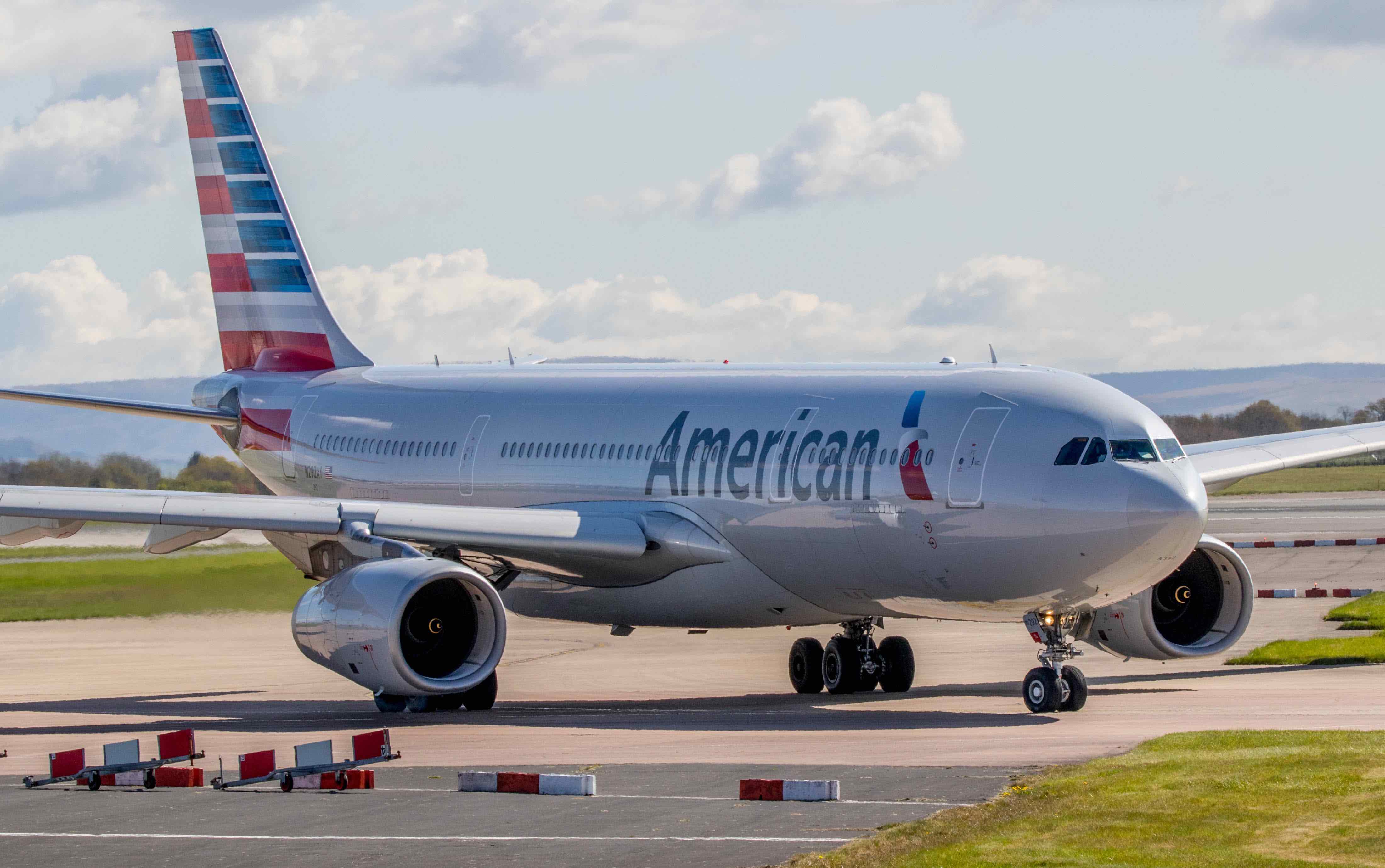An American Airlines A330-300 did not divert due to a spilled cleaning product. Instead, an oil leak is likely to blame, even as AA denies it.
Last month, AA729, pushed back from the gate at London Heathrow on schedule at 10:15AM, but did not take off immediately after a spill was discovered. Early reports suggested aircraft cleaners had left left a bottle of bleach-like substance onboard and it tipped over during taxi. The aircraft did take off, but noxious fumes filled the cabin, causing two flight attendants to pass out.
At the time, AA said:
American Airlines flight 729 from London Heathrow to Philadelphia diverted to Dublin due to an odor caused by a spilled cleaning solution in the galley.
The flight landed safely in Dublin at 1:15 p.m. local time, and taxied to the gate. Medical personnel have met the aircraft to evaluate any crew members or passengers who may need additional assistance.
BBC decided to dig a little deeper by obtaining a copy of the aircraft’s maintenance records. Those records showed the aircraft had been experiencing oil leaks at the time of incident, including directly prior to the diverted flight. Specifically, the Auxiliary Power Unit (APU) was leaking oil. The maintenance log clearly established an ongoing APU leak problem and passengers on October 23rd, two days after the diversion, also reported a “noxious odor” and “eye and throat irritation” on the same aircraft!
AA Disputes BBC Claim
When AA was pushed for an explanation, it backtracked on its original claim, admitting the cleaning solution “was not the source of the odor, which led to the diversion of this flight.”
Cabin odors are a priority for American’s leadership team at the highest level of the organization…
It cannot be emphasised enough that the health and welfare of our crews and customers continues to be our top priority.
Um, okay…
It also dismissed the APU claim, arguing it could not have ebeen the APU becuase it was “not operational during this time period and did not operate during this flight”.
But as the BBC notes:
However, a document written by aircraft manufacturer Airbus clearly states that an APU, which has leaked oil, can contaminate the air supply in the cabin, even when the unit is switched off.
That’s because if oil leaks from the APU it can spill into the ducting of the plane’s air conditioning system.
Sounds like a cover-up to me. Confess it and move on…
CONCLUSION
I quickly bought the bleach story because we once had a cleaning lady in our office faint due to the strong smell of bleach. It did not seem so far-fetched that a spilled bottle of bleach would create noxious fumes that could make many sick. But that is apparently not what happened. Instead, an oil leak in the APU contaminated the air supply system.
I’m not sure what is worse: poor maintenance on AA or the odd choice to strongly deny the APU connection to the diversion. We certainly see what AA views as the greater of two evils…
> Read More: Flight Attendants Faint And AA Flight Diverts After Onboard Chemical Spill
image: Russell Lee / Wikimedia Commons




Very interesting. Why would they try to cover it up? Because of their notoriously bad reliability and trying to push the issue onto a ground crew subcontractor? Or does EC261 maybe not apply in the case of a spilled bleach? I would think it would still apply, but I’m also not an expert of European aviation and consumer protection laws.
EU261/2004 is an interesting angle I had not considered. I actually think that would make a difference.
I thought that EC261 only applied to airlines with HQ in the EU?
It applies to EU airlines whether inbound or outbound to Europe. It only affects US and other foreign airlines on flights leaving the EU.
I was on that flight and nobody passed out. In fact, there was so little odor that kids were playing on their iPads unaffected. There was one extremely dramatic flight attendant, who never actually lost consciousness and who seemed fine the next day at the airport , and I have come to the conclusion that this was employee sabatoge for some labour dispute. I don’t have proof, but I know what I saw and smelled—nothing but drama.
The APU “was not operational”. This implies that the APU had a defect and could not be used. The A330 MMEL (as it does for any ETOPS airplane) states “Except for ER operations beyond 120 minutes, may be inoperative provided APU is deactivated or removed.” So were they operating the airplane on under 120 minute routes or did someone misspeak about the APU not being “operational”. Also, the APU could have had an external oil leak or one in the turbine section. How do we know the oil leak was in the compressor section of the APU?
No. Not operational means it was turned off.
Many journalists and the general public who follows them, are aviation illiterate. Worst thing they prefer the tabloid style sensationalism to real knowledge. Confess it. And move on.
Heather Poole will have a field day
The photo is of an A330-200, not a -300!
Your article is full of shit. You know how I know? Because the AA 330-300 tail number you cited in your article is wrong. AA 330-300 tail numbers run from 270-278. There is no 729. Get educated ignoramus.
AA729 refers to the flight number, not the tail number.
Who is the ignoramus now ?
Well said.
You would not be operating the APU in flight. An engine could cause this bit given it was limited to a couple FA’s the cleaner sounds more reasonable given the picked nature.
What’s with all the extra commas?
“AA729, pushed back from the gate”
“an APU, which has leaked oil, can contaminate the air supply”
“was not the source of the odor, which led to the diversion of this flight”